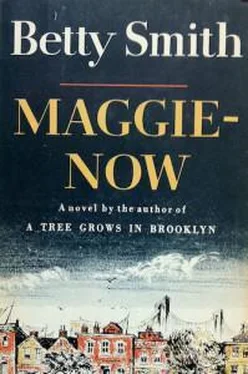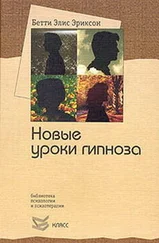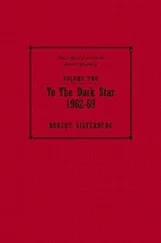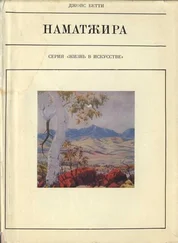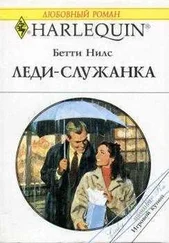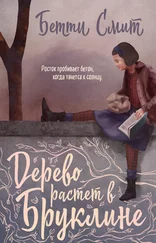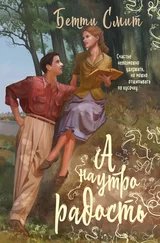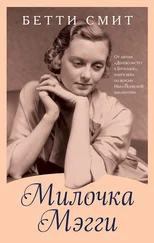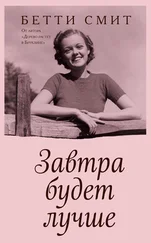Бетти Смит - Maggie-Now
Здесь есть возможность читать онлайн «Бетти Смит - Maggie-Now» весь текст электронной книги совершенно бесплатно (целиком полную версию без сокращений). В некоторых случаях можно слушать аудио, скачать через торрент в формате fb2 и присутствует краткое содержание. Жанр: Проза, на английском языке. Описание произведения, (предисловие) а так же отзывы посетителей доступны на портале библиотеки ЛибКат.
- Название:Maggie-Now
- Автор:
- Жанр:
- Год:неизвестен
- ISBN:нет данных
- Рейтинг книги:3 / 5. Голосов: 1
-
Избранное:Добавить в избранное
- Отзывы:
-
Ваша оценка:
- 60
- 1
- 2
- 3
- 4
- 5
Maggie-Now: краткое содержание, описание и аннотация
Предлагаем к чтению аннотацию, описание, краткое содержание или предисловие (зависит от того, что написал сам автор книги «Maggie-Now»). Если вы не нашли необходимую информацию о книге — напишите в комментариях, мы постараемся отыскать её.
Maggie-Now — читать онлайн бесплатно полную книгу (весь текст) целиком
Ниже представлен текст книги, разбитый по страницам. Система сохранения места последней прочитанной страницы, позволяет с удобством читать онлайн бесплатно книгу «Maggie-Now», без необходимости каждый раз заново искать на чём Вы остановились. Поставьте закладку, и сможете в любой момент перейти на страницу, на которой закончили чтение.
Интервал:
Закладка:
~ USE 1
furnace. It was put off until the spring.
After the deal with the furnace man, Claude, no doubt feeling that he had accomplished his mission, stopped working. He took up his old place at the window and waited. One day that wind came and she pinned the gold piece in his pocket and gave him the quarter for cigarettes and the paper. He didn't come back.
Well, she was used to Claude's leaving by now. And she would have to get used to Mark's leaving. She counted the months, the weeks, the days until he'd be taken from her.
I Rust expect it, she told herself. I know it mast come. She did her best to prepare herself for the time.
They put the furnace in. She didn't have the money to pay the balance. She pried twenty-five dollars out of her father on the grounds that he had no: paid for Denny's keep while he, Pat, was at the widow's. She paid off the rest, five dollars a month. She was able to get five dollars more per month rent for the upstairs. That paid for some of the coal. Her taxes on the house were raised a little on account of "improvements."
~ CHAPTI,R FIFTY-ONE ~ THE pattern of Maggie-Now's life seemed set now. She took Mark back to the home when he was six and, in spite of Mother incent de Paul's orders, Maggie-Now wept and Mark wept and clung to her. They gave her another baby. He was six months old and his name was Anthony. She counted up the years and months, days and weeks. She'd have Johnny three years more, and Anthony five and a half years. That was a long, long time, she thought. She was content Claude came home each winter with his gift and with meat or fowl. Sometimes he brought a little money. Pat went to the widow's each winter but one, and sent for the priest each night before, save one. Father Flynn was in the hospital having a kidney stone removed at the time.
Another priest served the parish temporarily. Pat didn't want this other priest. He was afraid he'd give him Extreme Unction.
1 Is] One winter he didn't go to l\~lrs. O'Crav. fey's because she closed up her boardinghouse lor a few months while she took a vacation in Floricla. Pat worried. There were men down there. They'd know she had means, else how could she afford a Florida vacation? fIe was afraid someone would marry her for her property.
When she came back after Christmas, unmarried, Pat was so relieved that he bought her a five-dollar vanity case as a present. She gave him a present in return a knotty shillelagh, a treasure that had belonged to her first husband. He was proud of it, Pat was, and carried it with him whenever he went out, wishing he could get into an argument and make use of it.
Annie's Jamesie, now grown up, got a fine job in a well-known men's haberdashery store downtown on Fulton Street. He earned thirty-five a week to start and he gave his mother all of it save five dollars a week for his expenses. Annie was able to give up her sandwich-making job at last.
"They put him in front where people see him to sell ties."
"That's because he m: kes such a good appearance," said l\laggieNow.
"Such a good boy," said Annie. "But already he goes with a girl. Shirley."
"Serious?" asked Maggie-Now.
Annie nodded. "In two years, they get married." She sighed. "But that must be. The c hildren go away from you when they get big. But for two years we will live without worry."
Maggie-Now worried about Lottie. Gracie and Widdy came to see her one Sunday afternoon. "Widdy's mother's not'right,"' said Gracie. "And Widciy and I don't think she should live alone. It would be better if she went to some old ladies' home where she could be with her contemporaries. She could turn over her pension to the home and get spa cial privileges. Some of those homes are real nice."
"But you see, Maggie, Mother won't go," said Widdy, "and eve thought since she likes you so much and depends on you, in a way, that you could talk her into it."
"I'll do no such thing, ' said Maggie-Now angrily. "And shame on you, Widdy, and you too, Gracie, putting your mother in an old ladies' home. Don't you tell me she'd be better off with her con. . con. . with people her own age. Let her have her 1.,fsO 1
home where she was so happy with her Timmy where everything reminds her of him so much that it's like he was still there."
"But, Maggie," said Gracie gently, "we worry about her.
She might get sick and die there alone. And it's not fair, Maggie, that we should worry. We have our own children and. ."
"Worry then," said Maggie-No\v bitterly. "It will do you good to worry about somebody else for a change. When I think of how your mother took the twins off your hands when Widdy was in the war and you were gadding around
. ."
She got them to promise that one or the other would drop in on Lottie once each day. Maggie-Now, herself, went to see Lottie twice a week if she could talk Pat into staying with the babies for a few hours.
On one visit, Lottie seemed distraught. "Timmy was looking all night for that china dog with the nursing puppies and he couldn't find it. Somebodv must have stolen it," she said.
On her next visit, Maggie-Now surreptitiously slipped the china dog back on the mantelpiece.
Van Clees wasn't doing so well. After the war, the men came back with a taste for cigarettes. Then the big tobacco trusts had their chain stores and could undersell the small tobacconists.
"And give coupons in the bargain for stuff," said Van Clees. "Once I work all day every day so many people smoke my Havanas, handmade. But now," he shrugged, "two hours a week I can make all I can sell. I do not worry. My property is all mine and I save my money many years but is not good for me not to work every day."
He complained about the great changes in the neighborhood. The poor Jewish families who lived in the ghettos of Siegel. Moore and MacKibbon Streets were moving out and even poorer Negro families were taking their place.
"The colored people," said Van Clees, "is got right to live same as us. Only is bad for real estate. The landlords they don't make repairs for the colored people and the houses fall down and my property ain't worth so much."
But on the bright side, Maggie-Now told him, look at that beautiful housing development. And indeed it was beautiful. People had sun and air and lived uncrowded and the rents were low. Of course, she had felt bad when the slum-clearance project [56~]
razed the Moriarity house where her mother had been born.
"Sonny's place is gone, too. But oh, he got good money for it, Miss Maggie. You see how he has that new store, in gold on the window: Ahead and Parker, Plumbing and Heating, Day and Night? Is good."
Yes, the elder Pheid had died and Sonny got the business and took in his sister's husband, Cholly, as partner. I\laggie-Now smiled, remembering Cholly. Gina'd had another baby, a girl named Bertha after her mother.
Only Cholly called her Birdie. That Cholly! thought Maggie-Now.
"And Denny?" asked Van Clees.
"He graduated from public school. You heard' Diploma and all."
"Yes, also Annie's Jessie. Such a nice girl."
"Awfully nice," agreed l\iaggie-No\v. "You know, when Denny graduated, he thought he was through with school for life. Was he mad when 5 told him he'd have to go until he was sixteen."
"Is the law," agreed Van Clees.
"He's working this summer."
"No!'' "Errand boy for the druggist. He wants to make money to buy a long-pants suit for high school."
"Too big for the birthday candles, is he now," sighed Van Clees. "My Tessie, too. Time goes, Miss Maggie."
Читать дальшеИнтервал:
Закладка:
Похожие книги на «Maggie-Now»
Представляем Вашему вниманию похожие книги на «Maggie-Now» списком для выбора. Мы отобрали схожую по названию и смыслу литературу в надежде предоставить читателям больше вариантов отыскать новые, интересные, ещё непрочитанные произведения.
Обсуждение, отзывы о книге «Maggie-Now» и просто собственные мнения читателей. Оставьте ваши комментарии, напишите, что Вы думаете о произведении, его смысле или главных героях. Укажите что конкретно понравилось, а что нет, и почему Вы так считаете.
